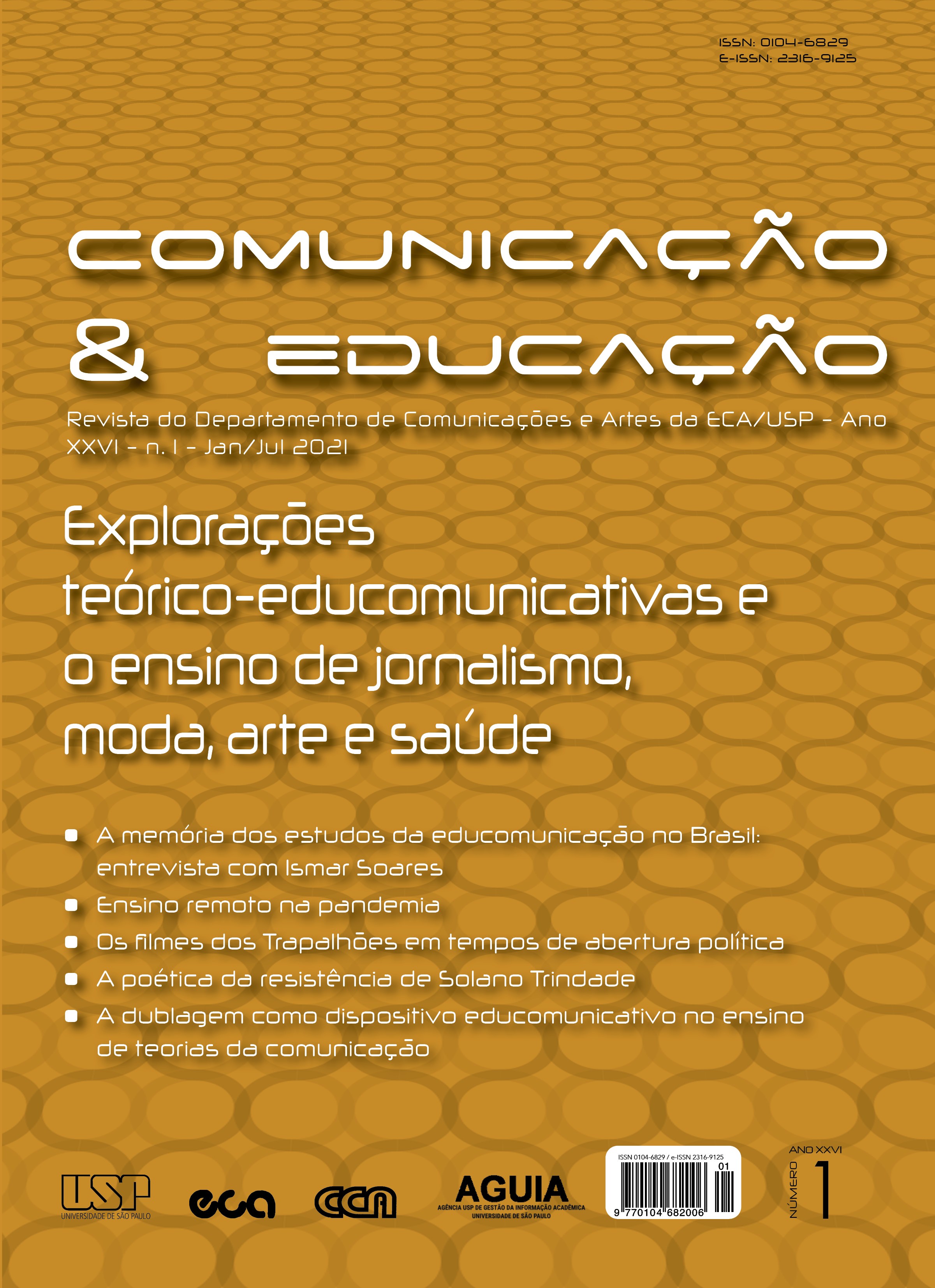Writings: the blog and the microblog as research spaces in life history
DOI:
https://doi.org/10.11606/issn.2316-9125.v26i1p119-131Keywords:
Twitter, Digital research tools, Life history, Religious fundamentalismAbstract
This article is based on a research
aimed at contributing to the knowledge
and diagnosis of forms of violence in contexts
of religious fundamentalisms, and to
deepen the theoretical discussions of the
subject, with a special focus on the role
played by Education. The methodology
included the creation of a weblog opened
to the postings of life histories of girls and
women who suffered violence in contexts
of religious fundamentalisms. The analysis
concluded that, in order to study themes
still involved in silence and prejudice, as
is the case of the relationship between
gender violence and religious fundamentalisms,
combining the blog with other tools
of cyberculture can be of great relevance,
since that it allows for the creation of
spaces of trust and intimacy that favor the
sharing of personal testimonies.
Downloads
References
AMARAL, Adriana; RECUERO, Raquel; MONTARDO, Sandra. Blogs: mapeando um objeto. In: AMARAL, Adriana; RECUERO, Raquel; MONTARDO, Sandra (org.). Blogs.com: estudos sobre blogs e comunicação. São Paulo: Momento Editorial, 2009. p. 27-54.
ARMSTRONG, Karen. Em nome de Deus: o fundamentalismo no Judaísmo, no Cristianismo e no Islamismo. São Paulo: Companhia das Letras, 2009.
BARDIN, Laurence. Análise de conteúdo. São Paulo: Edições 70, 2011.
EVARISTO, Conceição. Minha escrita é contaminada pela condição de mulher negra. In: LIMA, Juliana Domingos de. Jornal Nexo, São Paulo, 2017. Disponível em: https://bit.ly/2HVfnIW. Acesso em: 30 abr. 2020.
LEMOS, André. Cibercultura: alguns pontos para entender a nossa época. In: LEMOS, André; CUNHA, Paulo (org.). Olhares sobre a cibercultura. Porto Alegre: Sulina, 2003. p. 11-23.
MAGALHÃES, Maria José. Construção do sujeito mulheres: subjetividades das vozes e dos silêncios. In: MAGALHÃES, Maria José et al. (org.). Pelo fio se vai à meada: percursos de investigação através de histórias de vida. Lisboa: Ela por ela, 2012. p. 9-12.
SANTOS, Boaventura de Sousa. Pela Mão de Alice: o social e o político na pós-modernidade. 4. ed. São Paulo: Cortez, 1997.
SKLIAR, Carlos Bernardo; DUSCHATZKY, Sílvia. O nome dos outros: narrando a alteridade na cultura e na educação. In: LARROSA, Jorge; SKLIAR, Carlos (org.). Habitantes de Babel: políticas e poéticas na diferença. Belo Horizonte: Autêntica, 2001. p. 119-138.
WADI, Shahd. O ser das mulheres palestinas: histórias de vida entre cusquices e rabiscos. In: MAGALHÃES, Maria José et al. Pelo fio se vai à meada: percursos de investigação através de histórias de vida. Lisboa: Ela por ela, 2012. p. 113-133.
WINELL, Marlene. Leaving the Fold: a guide for former fundamentalists and others leaving their religion. Berkeley, CA: New Harbinger Publications, 2007.
ZAGO, Gabriela da Silva. Dos blogs aos microblogs: aspectos históricos, formatos e características. In: CONGRESSO NACIONAL DE HISTÓRIA DA MÍDIA, 6., 2008, Niterói. Anais […]. Niterói: UFRGS, 2008. Disponível em: http://www.bocc.ubi.pt/pag/zago-gabriela-dos-blogs-aos-microblogs.pdf. Acesso em: 30 abr. 2020.
Downloads
Published
Issue
Section
License
Copyright (c) 2021 Roselete Fagundes de Aviz, Gilka Elvira Ponzi Girardello

This work is licensed under a Creative Commons Attribution 4.0 International License.
I authorize the publication of the submitted article and soon the copyrights to the magazine, in the printed and electronic version, if it is approved after the evaluation of the reviewers.
I understand that readers may use this article without prior request, provided the source and authorship are mentioned. Readers are not authorized to use this article for reproduction, in whole or in part, for commercial purposes.

































